As we age, many changes happen to our bodies and this includes our teeth and gums. While some dental issues are more common in older adults, the good news is that with proper care and attention, you can maintain a healthy smile and enjoy good oral health throughout your life.
Hey, healthy mouth, healthy body!
This article explains the most common dental issues that seniors face and offers practical advice on how to address them.

Common Dental Issues in Seniors
- Tooth Loss (Edentulism):
According to the National Institute of Dental and Craniofacial Research (NIDCR), nearly 19% of adults aged 65 and older have lost all their natural teeth, and tooth loss increases with age. The causes of tooth loss include untreated cavities (dental caries), gum disease (periodontitis), and trauma. Missing teeth not only affect the appearance of your smile but also make it harder to chew food properly, which can impact your nutrition and overall health.
For those missing teeth, dentures or dental implants are often recommended to restore functionality and appearance. Implants are a more permanent option, where titanium posts are surgically placed in the jawbone to hold artificial teeth.
- Gum Disease (Periodontal Disease):
Gum disease is a major concern for older adults, with more than half of seniors experiencing moderate to severe periodontal disease. The disease starts as gingivitis, characterized but swollen, red, and bleeding gums, and can progress to periodontitis, where the infection spreads deeper into the tissues, leading to bone loss and even tooth loss. Periodontal disease is not just an oral health issue; it has been linked to serious conditions such as heart disease, diabetes, and stroke.
Maintaining good oral hygiene by brushing with fluoride toothpaste, flossing daily, and visiting your dentist regularly for cleanings can help prevent and manage gum disease. If you already have gum disease, treatment may involve scaling and root planing, a deep cleaning procedure that removes plaque and tartar buildup from below the gumline.
- Dry Mouth (Xerostomia):
Dry mouth is a common issue for older adults, often caused by the medications used to treat various chronic conditions such as high blood pressure, diabetes, or depression. Saliva is essential for neutralizing acids, washing away food particles, and preventing tooth decay. Without enough saliva, the mouth becomes dry, which increases the risk of cavities, gum disease, and oral infections.
If you suffer from dry mouth, your dentist may recommend saliva substitutes, prescription medications, or special mouthwashes designed to stimulate saliva production. Drinking plenty of water and chewing sugar-free gum can also help keep the mouth moist.
As we age, the enamel on our teeth can wear down due to years of chewing, brushing, and exposure to acidic foods and drinks. When the enamel wears down, the dentin beneath it becomes exposed. Dentin is sensitive to temperature changes and certain foods, leading to discomfort when eating or drinking hot, cold, or sweet items.
Tooth sensitivity can also occur if gums recede, exposing the sensitive roots of the teeth. Using a soft-bristled toothbrush and toothpaste for sensitive teeth can help alleviate discomfort. In more severe cases, your dentist may apply a fluoride treatment or use bonding to protect those exposed areas.
- Cavities (Dental Caries):
Cavities are not just a concern for children. As you age, you may still be at risk for developing new cavities, especially if you have a history of dental problems or suffer from dry mouth. Fillings may also wear down over time, leading to new cavities beneath old restorations. Cavities can develop in any area of the tooth, especially in pit-and-fissure areas on the back of the teeth, where food particles can get stuck.
Preventing cavities as you age involves maintaining good oral hygiene and getting regular dental checkups. Your dentist may also recommend dental sealants – a thin plastic coating applied to the chewing surfaces of your back teeth to prevent cavities from forming.
How To Care For Your Teeth & Gums As You Age
- Brush & Floss Regularly:
Good oral hygiene is the foundation of healthy teeth and gums at any age. Brush your teeth at least twice a day with a fluoride toothpaste to help prevent cavities and gum disease. Make sure to brush all surfaces of your teeth, including the front, back, and chewing surfaces. Use a soft-bristled toothbrush to avoid damaging your gums.
Flossing is essential for removing plaque and food particles from between your teeth, where your toothbrush can’t reach. Floss at least once a day to help prevent gingivitis and cavities.
- Regular Dental Visits:
Regular dental checkups are key to preventing and detecting dental issues early. Even if you don’t have any noticeable problems, seeing your dentist at least once a year for a comprehensive exam and professional cleaning is important. Your dentist will check for cavities, gum disease, tooth decay, and other oral health problems. They may also take x-rays to look for hidden issues such as bone loss or cavities under old fillings.
- Stay Hydrated:
Drinking plenty of water is one of the simplest ways to maintain good oral health. Staying hydrated helps maintain saliva flow and keeps your mouth moist. If you suffer from dry mouth, drinking water regularly throughout the day can help relieve symptoms.
- Use Fluoride:
Fluoride is a mineral that helps strengthen tooth enamel and prevent cavities. It’s found in most toothpastes and mouth rinses, and it may be applied professionally at your dental office if you have a higher risk of cavities. Dentists often recommend fluoride treatment or fluoride varnish when getting your teeth cleaned as a preventative treatment.
- Consider Dentures, Implants, or Bridges:
If you’ve lost teeth, there are several options for replacing them. Dentures are removable appliances that replace missing teeth, while dental implants are permanent, surgically placed replacements that look and function just like natural teeth. Dental bridges can also be used to fill gaps between teeth, securing false teeth to neighboring natural teeth or implants.
- Eat a Balanced Diet
Eating a healthy diet helps maintain strong teeth and gums. Foods rich in calcium, such as dairy products, leafy greens, and fortified plant-based milks, are essential for keeping your teeth strong. Avoid sugary snacks and drinks, as sugar feeds bacteria that cause cavities.
Foods that are crunchy, like carrots and apples, can also help clean your teeth and massage your gums.
- Quit Smoking
Smoking increases the risk of gum disease, tooth loss, and oral cancer. If you smoke, quitting is one of the best things you can do for your oral health. Talk to your doctor or dentist for resources to help you quit.
Takeaway: Prioritize Your Oral Health
Aging doesn’t have to mean poor oral health. With good oral hygiene, regular dental visits, and a healthy lifestyle, you can maintain a beautiful smile and strong teeth well into your senior years. If you have concerns about your dental health or notice changes in your mouth, don’t hesitate to reach out to your dentist. They can help you navigate the best treatments and strategies for your oral health needs.
Your oral health is closely intertwined with your overall health, so investing in your teeth and gums is an investment in your overall well-being. By addressing common dental issues early and taking preventive steps, you can keep your smile healthy, functional, and beautiful for years to come.
Take Charge of Your Smile—No Matter if you are 1 or 101!
Your oral health matters now more than ever. Whether you’re facing dry mouth, sensitivity, or missing teeth, there’s always a solution—and it starts with taking action. At Thorncrest Dental, we’re here to help you stay ahead of dental issues and maintain a healthy, confident smile well into your golden years.
👉 Book your senior dental checkup today and let us tailor a care plan that fits your needs.
📞 Call us at (416) 233-6883 or contact us online to schedule an appointment.
Resoruces
https://www.canada.ca/en/public-health/topics/oral-health/caring-your-teeth-mouth/senior.html
https://www.ada.org/resources/ada-library/oral-health-topics/aging-and-dental-health




